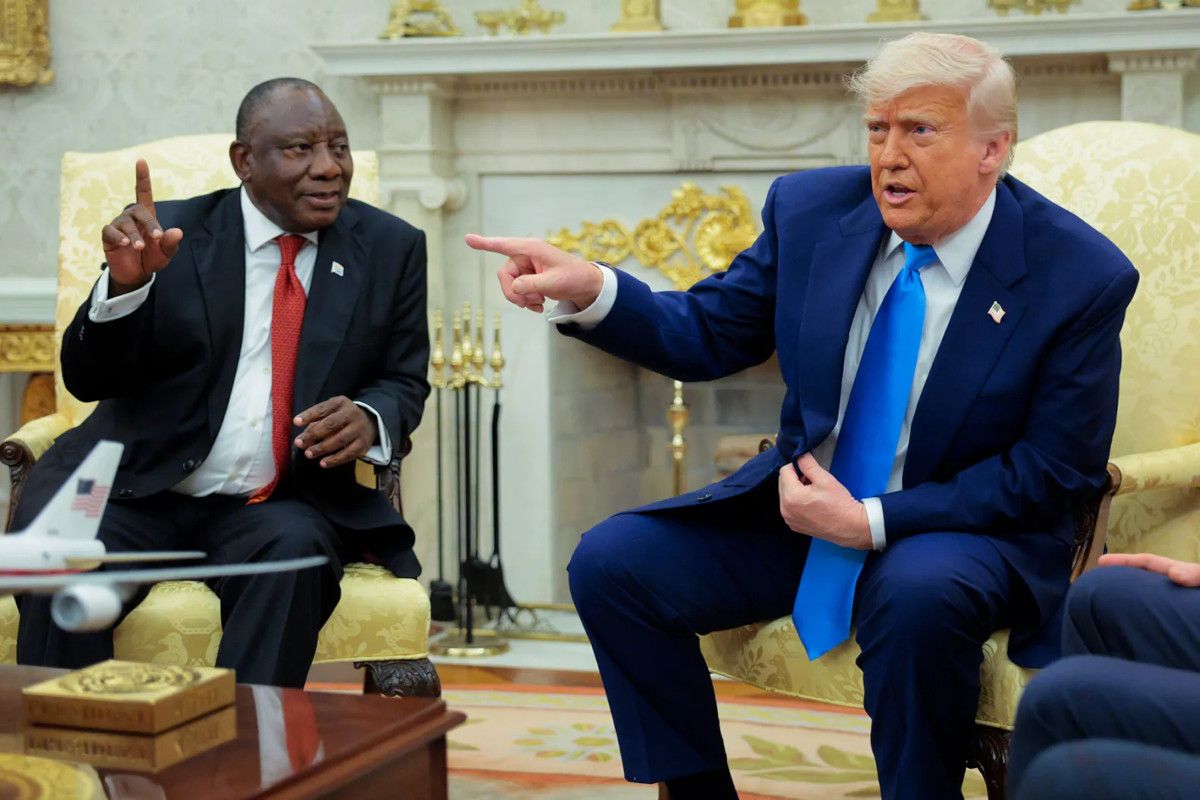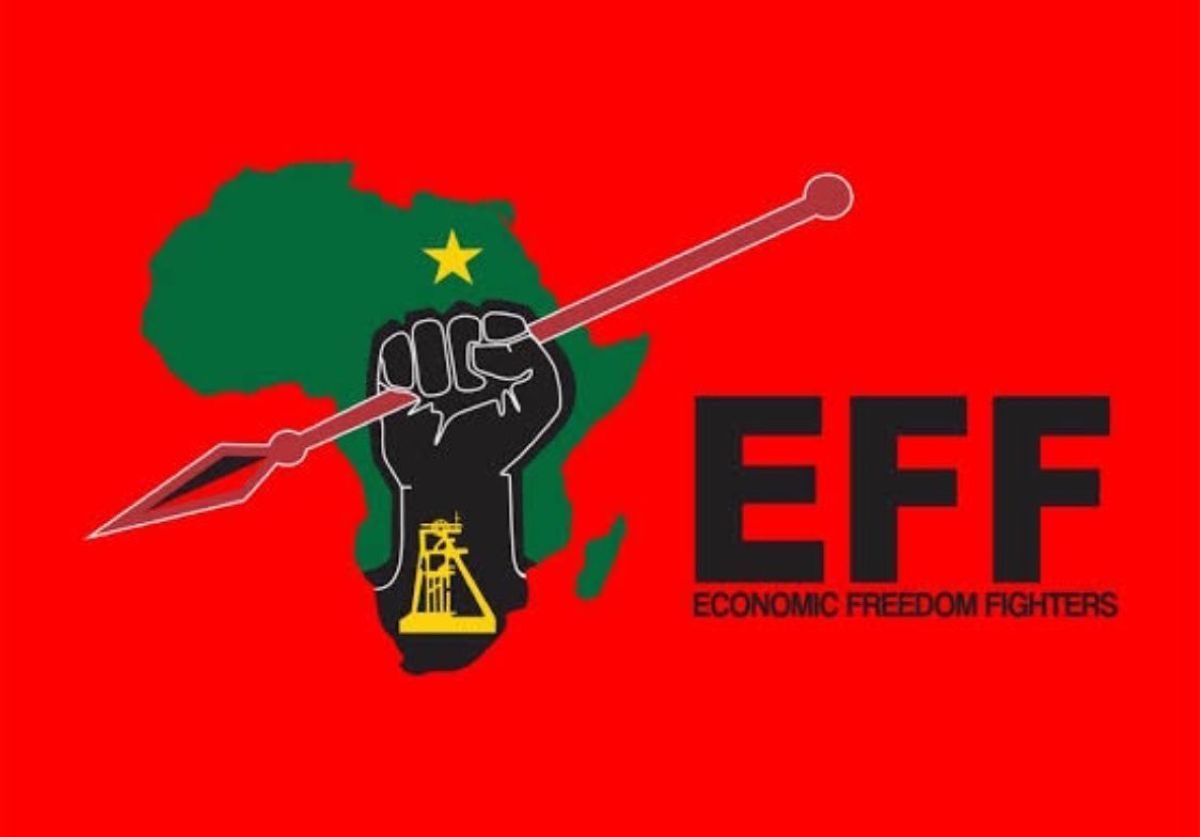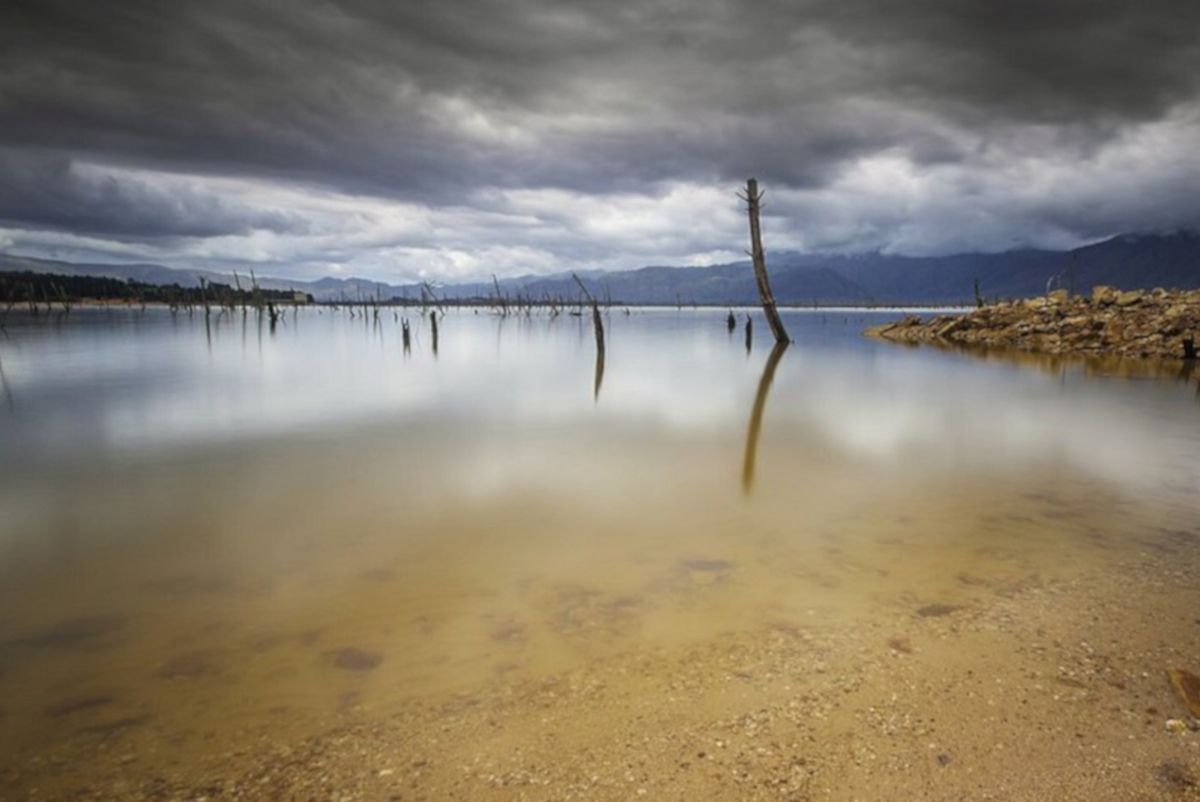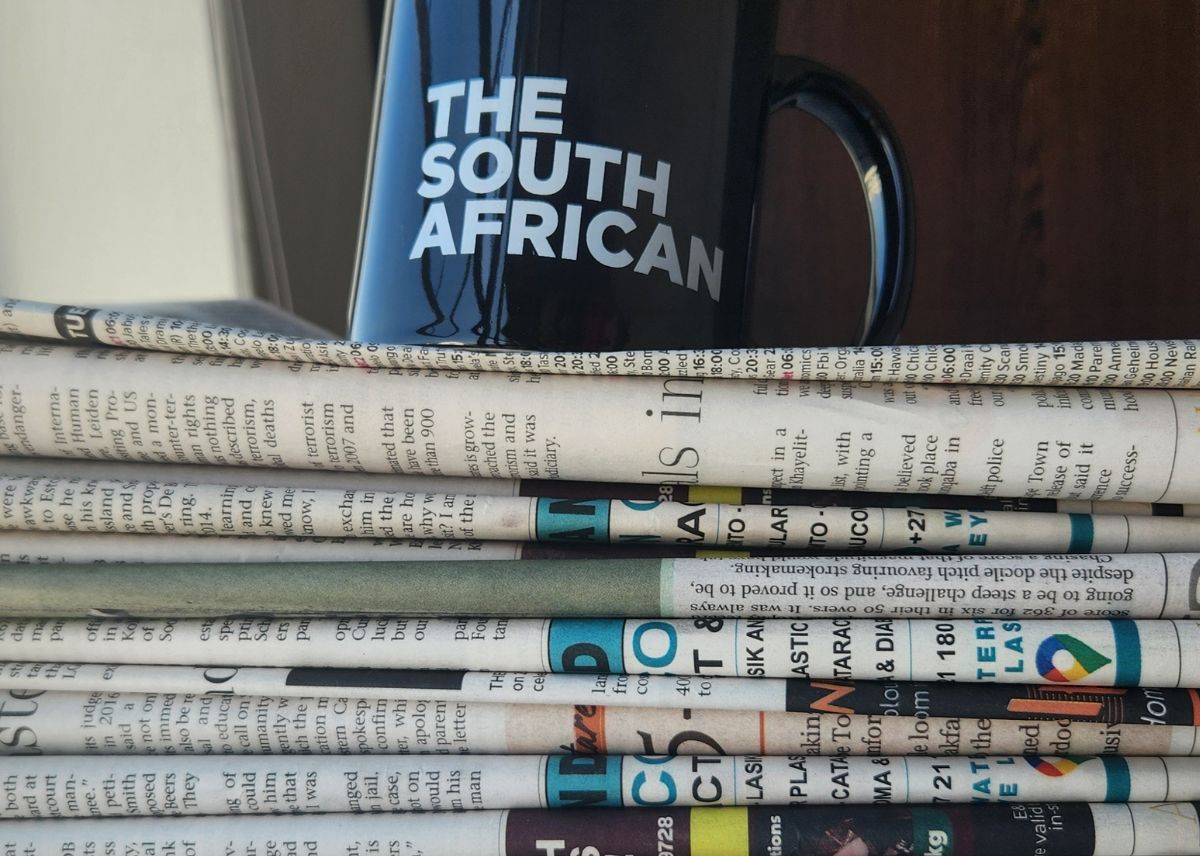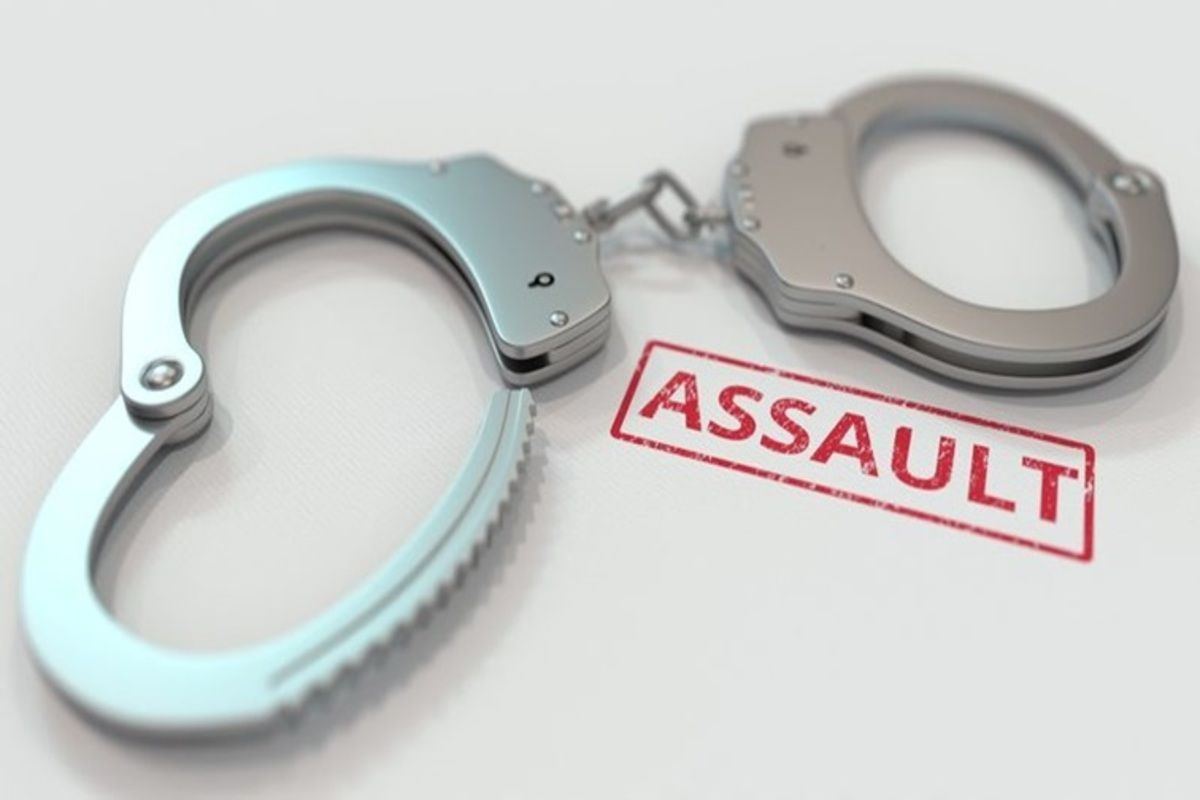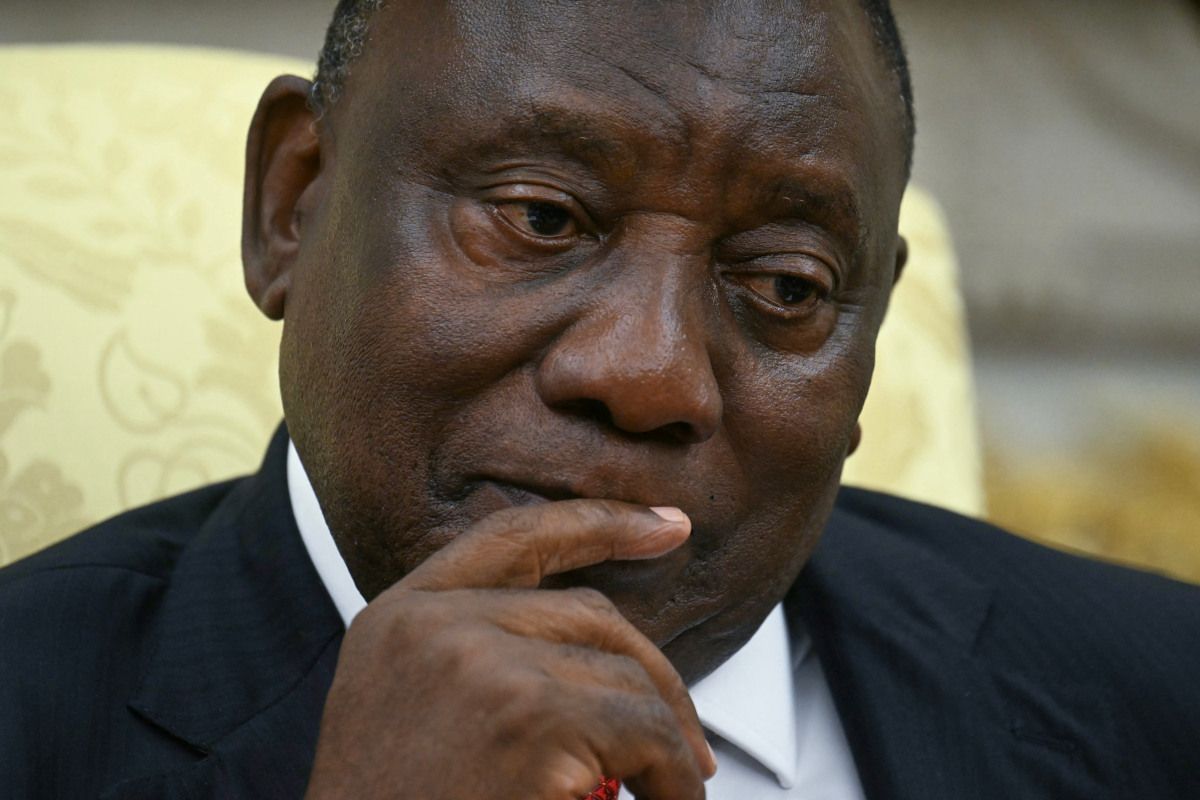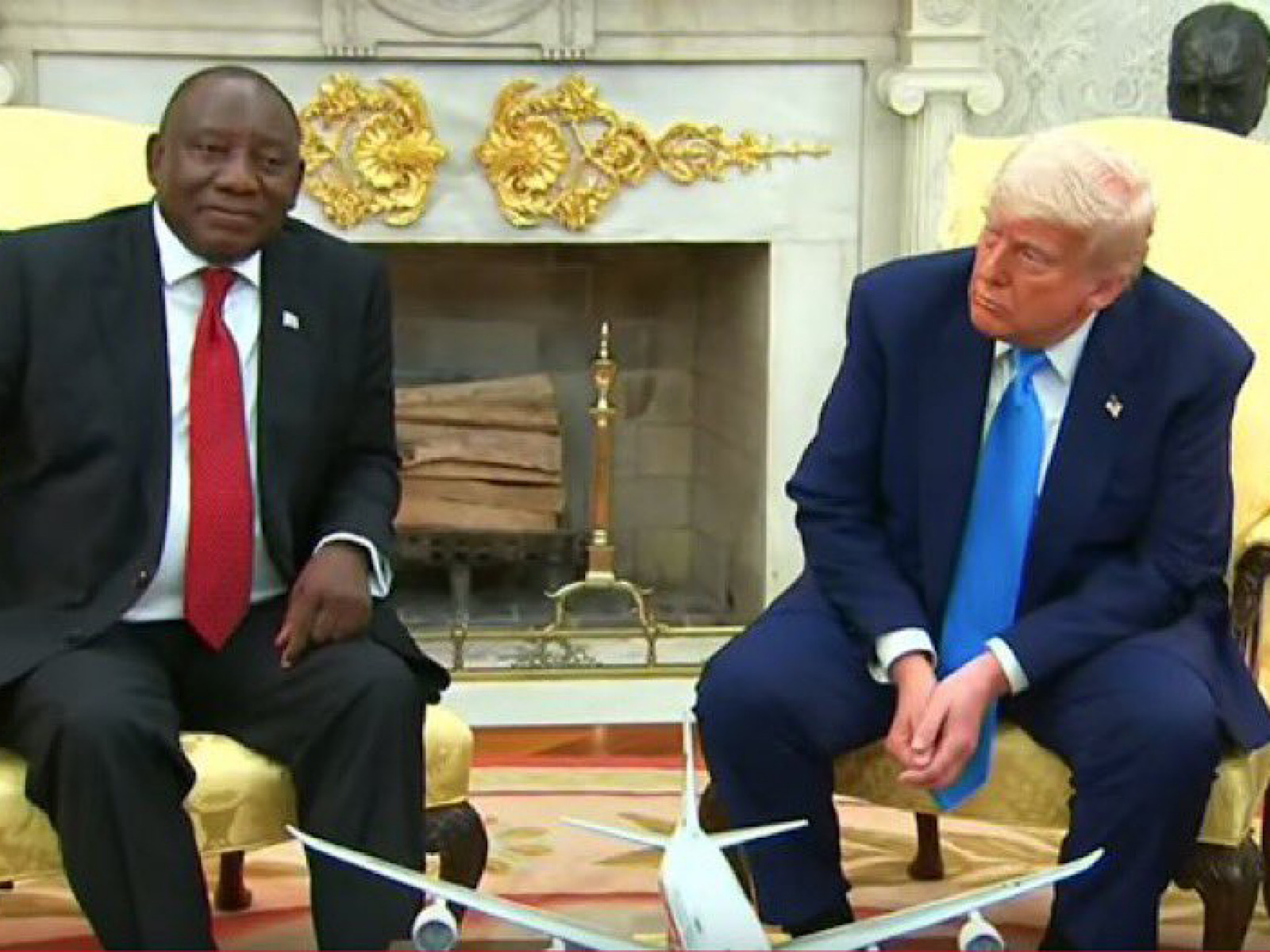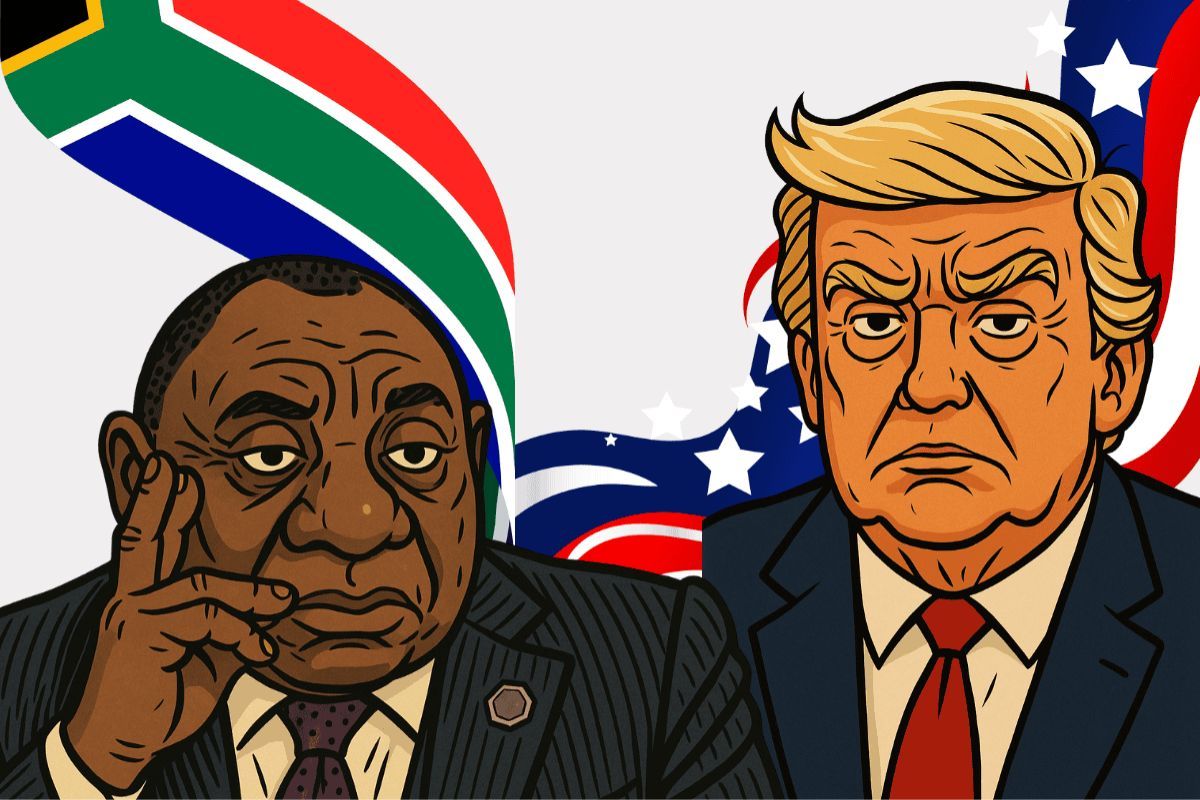
Yesterday evening (South African Time), our President sat down with US President Donald Trump for what was probably one of the most highly anticipated events in South Africa’s political history since the dawn of democracy, an Oval Office encounter orchestrated to reset strained bilateral relations between the United States and our nation.�
Penning this analysis, I was reminded by just how much has happened in so little time to sour ties with “the most powerful economy in the world.”
In recent months, President Trump has repeatedly amplified allegations of a “white genocide” against South African farmers, even issuing an executive order to grant refugee status to Afrikaans farmers, a move that took many by surprise.�
A Rapid Unraveling of US–SA Relations
Washington also cut critical aid for HIV and TB research, a decision that threatens decades of public-health progress.�
Our Ambassador to the US, Mahamoud Rasool, was expelled amid growing diplomatic tension, while tech titan Elon Musk publicly reproached our “race-based” black-empowerment laws as a barrier to establishing Starlink’s headquarters here .�
Add to this the AfriForum delegation’s visit to Mar-a-Lago earlier this year, seeking Trump’s intervention to dismantle those very laws, and it becomes clear how little was off the table when President Ramaphosa boarded that plane to Washington.
Yet here we were, in the Oval Office, facing a barrage of YouTube clips depicting Julius Malema’s most incendiary remarks and graphic alleged memorial sites of murdered white farmers.�
By all rights, it could have become a spectacle. Instead, what unfolded was a masterclass in measured statesmanship.�
Meet the Delegations: From Musk and Vance to Rupert and Els
On Trump’s side, Elon Musk and Vice-President J.D. Vance were present, silent throughout the formal proceedings, though it’s understood they held off-the-record discussions.
Representing South Africa was a carefully curated, diverse cohort: Minister Ronald Lamola (International Relations and Cooperation), Minister Parks Tau (Trade and Industry), Minister John Steenhuisen (Agriculture), business titan Johann Rupert, and golfing legends Ernie Els and Retief Goosen.�
This carefully crafted entourage sent a clear message: South Africa is a rainbow nation, united in its diversity and committed to honest dialogue.
Of course, the masterstroke was including familiar faces, individuals whom President Trump already knew and respected, thereby creating both common ground and credibility.
Measured Engagement: Golf Diplomacy and a Breakthrough in the Oval Office
President Ramaphosa, unflustered, listened respectfully, then addressed each concern with calm clarity, denouncing any suggestion of genocide, reaffirming our violent-crime challenges as shared concerns for all South Africans, and highlighting the rule of law that governs our land.
How did this breakthrough happen? Diplomatic channels alone did not deliver it. It took “golf diplomacy” and the quiet influence of our own power brokers.�
Johann Rupert, Ramaphosa’s mutual friend with Trump broke the logjam by initiating their first post-election call and assuring the US President that there have been no violent land seizures of white-owned farms.�
The tone remained cordial throughout. Minister John Steenhuisen was forced to concede that South Africa has a rural safety problem that needed to be addressed. Business tycoon Johann Ruper added that crime affects every citizen, white and black alike, stating “We have too many deaths, but it’s across the board” – underscoring that our law-and-order challenges are national in scope, not racial .
By the meeting’s close, Trump’s stance appeared to soften somewhat; leaving participation in this year’s G20 Summit open.�
Trump also seemed to adopt a “let’s see what happens” posture on our ICJ case concerning Gaza, signalling that it was simply a fight for another day.�
For our part, we left the Oval Office having survived what might have been a far greater diplomatic blow and having opened a door that had been firmly shut.
Was Ramaphosa right to remain so composed? In dealing with someone who seldom changes his mind, emotion often achieves nothing. As any negotiator knows, you must respect your counterpart’s style, even if they view power as performance art, as Trump himself once admitted when he quipped, “This is going to be great for television.” Our President understood that reality: by matching calm with candid engagement, he earned more goodwill than any outburst could have achieved.
Channeling Diplomatic Momentum into Domestic Action
Now, as South Africans, we should rally behind this moment of unity and strategic optimism. Yes, our country faces violent crime, entrenched inequality and chronic unemployment. Yes, without a robust economic deal, massive job losses loom, as Cosatu’s leadership has warned.�
But yesterday’s Oval Office meeting proved that when we marshal our collective strengths, our world-class negotiator at the helm, our respected business and sporting figures by his side, and a clear narrative of our nation’s achievements, we can turn pressure into opportunity.
Let us carry this spirit forward: into our homes, our boardrooms, and our communities. Because if we can stand firm against the White House’s theatrics, certainly we can tackle the real challenges at home, and bring about the change we so urgently need.
How do you think last night’s engagement in the Oval Office went?
Let us know by leaving a comment below or send a WhatsApp to 060 011 021 1.
Subscribe to The South African website’s newsletters and follow us on WhatsApp, Facebook, X, and Bluesky for the latest news.
